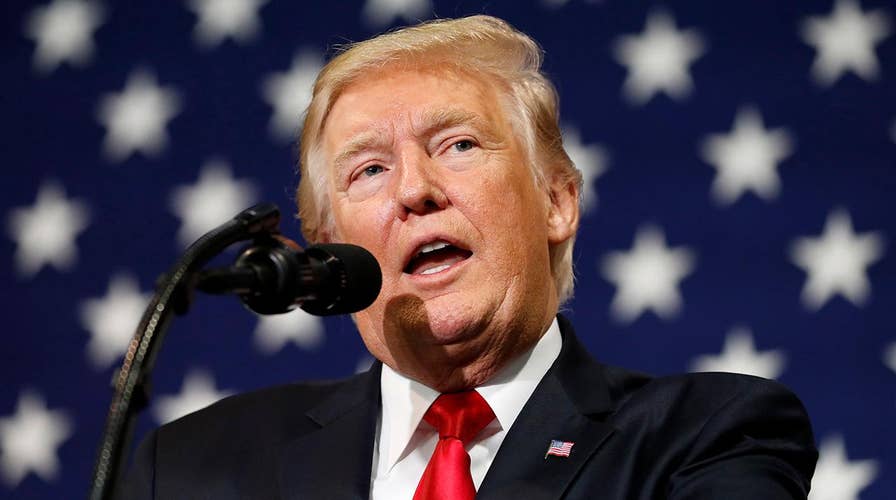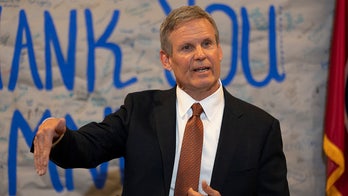Trump calls for tax reform for middle-income Americans
The president pitched the outline of a plan that he says could revitalize the economy; John Roberts has the roundup for 'Special Report'
President Trump on Tuesday met with key Republicans involved in crafting tax policy, calling for a legislative package that lowers taxes and makes America a “jobs magnet” as Congress returns to Washington.
“It is vital that we reduce the crushing tax burden on our companies and on our workers,” Trump told reporters. “We pay the highest tax of any country in the world on businesses. And we can’t keep doing that.”
The president made the comments at the beginning of a meeting in the Roosevelt Room with House Speaker Paul Ryan, Ways and Means Committee Chairman Kevin Brady, Senate Majority Leader Mitch McConnell, Senate Finance Committee Chairman Orrin Hatch, Treasury Secretary Steven Mnuchin and Director of the National Economic Council Gary Cohn.
White House Press Secretary Sarah Sanders said the leaders discussed plans for "historic tax reform that is pro-growth, pro-jobs, pro-worker, and pro-America.”
“The leaders reaffirmed their commitment to reducing the crushing burden of the nation’s self-destructive tax code, which hurts our companies and our workers, and discussed their desire to make the tax code simple, fair, and easy to understand,” Sanders said.
The meeting comes as Congress returns to Washington after the August recess.
Last week, Trump traveled to Springfield, Mo., to deliver a speech formally kicking off his push for comprehensive tax reform, making a case for drastically simplifying the tax code.
“I don't want to be disappointed by Congress,” Trump said in his speech last week.
TRUMP PLAYS HARDBALL IN TAX REFORM KICKOFF
The White House has not yet released a detailed tax reform plan. But describing his principles for reform, Trump last week called for a code that is “simple, fair, and easy to understand.”
“This enormous complexity is very unfair," the president said in Missouri. "It disadvantages ordinary Americans who don’t have an army of accountants while benefiting deep-pocketed special interests."
The president said in his speech he’d like to “ideally” bring the corporate tax rate down to 15 percent from 35 percent, saying it would “make us highly competitive.”





